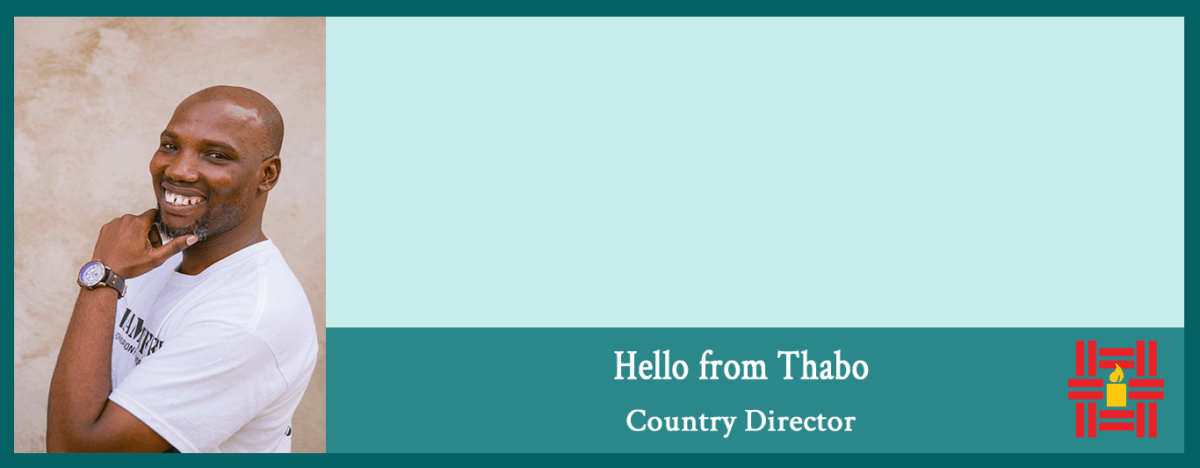
October 30, 2020
We believe that every child should receive equitable access to quality education. While this year has been a difficult one to navigate, we are proud of the TFFT team for continuing to deliver our mission and strive towards a shared vision. Today, we are showcasing some of the highlights of our work and the actions we’ve taken this year to ensure that learning and support to our scholars and partners was not placed on hold.
COVID-19 Response:
One of the most effective ways TFFT engaged in part of our efforts to combat the spread of COVID-19, and limit its impact on fragile health systems, was by building people’s knowledge and awareness. Through reaching out to our scholars, boundary partners, and parents/guardians with information, education and communication material, we were able to promote preventative action in communities, with our well informed scholars taking a lead as champions of good hygiene practices in their respective communities. This included promoting practising good hygiene and physical distancing measures, in line with national government guidelines and recognized best practice.
Realizing also that COVID-19 does not only affect lives but livelihoods, we were also able to support 63 of our scholars’ families with emergency relief support to last them at least a month, as a way to alleviate food security crises, while also enabling them to get back on their feet. These are families who from our Progress out of Poverty Index survive on less than 2USD per day. One of our recipient guardians remarked, “Your timing is inch perfect and I’m grateful beyond measure for this considerate gesture as my food stocks were so low, sustaining one meal a day would have been impossible. Now we can get back on our feet and direct our scarce resources to efforts that sustain the household” (Baba Lomboi; father to 3 TFFT Scholars).
The ‘pile-on effect’ of the coronavirus cannot be understated. The team observed that COVID-19 dictated interruptions to education were set to have long term implications especially for the most vulnerable. Schools closed on the 16th March and reopened on the 29th June. The real risk posed was of regression for children whose basic, foundational learning (reading, math, languages, etc.) was not strong to begin with. Our team worked at great risk to their own health to ensure that we reach over 80% of our scholars with not only basic food relief items, but school assignments. Due to the technology gap and distances involved to reach our scholars at their homes, we printed hard copies of assignments in bulk and delivered them to our scholars, while working with parents/guardians to ensure they maintained a disciplined study plan amidst the demands of household chores. In the African context, children have rights and responsibilities and it is their responsibilities (fetching water, firewood, attending to livestock, hand-washing clothes, attending to fields: planting, weeding, harvesting) that can get in the way of studying and leave one exhausted. This meant on a weekly basis the team was visiting a lot of households to ensure minimal disruptions to studying. This period also enabled us to reach more scholars in a single month than we usually do during an entire year to check on their welfare and coping mechanisms. The positive effect of this was strengthening relations with scholars and their guardians and enabling us to live our core values in the field as we act in the best interests of the child.
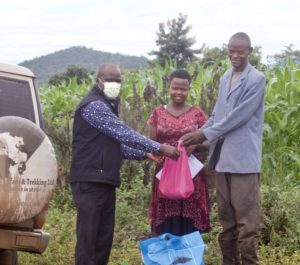
Migrating Face-to-Face Physical Teachers Trainings to Virtual Platforms:
Access to technology has grown but remains limited for the poor. Equity needs to be a priority and mobile phones are key. Data in Tanzania shows limitations in access to electricity and technology. Radio continues to remain a key source of daily information, but mobile phone access has expanded. 79% of the population has access to a mobile phone, but as noted in the Poverty Assessment, low internet and connectivity devalues the devices (World Bank, 2019). With this understanding, TFFT’s Teacher Training Program embarked on migrating professional development support for teachers to the virtual space. Knowing the challenges, this meant incentivizing the process by offering teachers training on how to access and use the Zoom platform including supporting them with data costs of 10 500 TZS/ USD4.54. Teachers were enthusiastic about this process and we managed to reach out to 39/45 targeted teachers over the virtual platform with a 86.6% reach. Teachers were so committed to the cause amidst the crisis that eight teachers from Manyata gathered at Leganga Teacher Resource Centre, having travelled some great distance from their homes, to convene for the virtual training in two groups, over two smartphones, to observe social distancing.
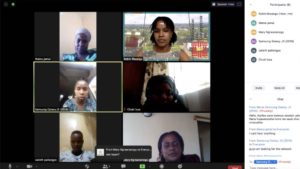
Distribution of hand-washing equipment as part of COVID-19 Response
Through the Teacher Training program, we supported 3 schools (Azimio, Burka (Arusha City Council) & Mayata (Meru DC) with a student population size of over 2,000 with 10 hand-washing and 10 tap buckets to promote hand-washing and hygienic behaviours. During this pandemic period and beyond, children can be important behaviour change agents in the community and school to introduce and maintain healthy behaviours like hand-washing. Hand-washing has been accepted as an effective measure to preventing the transmission of many infectious diseases especially diseases transmitted through unclean hands (diarrhea, pneumonia, common cold, swine flu, worm infestation, conjunctivitis, pyoderma, jaundice and typhoid). In the household settings, children communicate key health messages and introduce relevant health practices to help parents/siblings improve their knowledge and change their behaviors through participation. This is a worthwhile partnership and investment for TFFT.
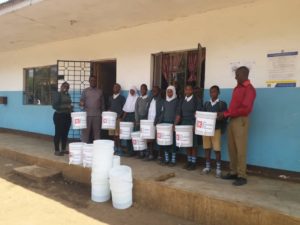
100% course/ academic level completion from scholars
TFFT scholars have been impressive and shown enthusiastic discipline, dedication, and growth this year, as always. Scholars have successfully completed different levels of study successfully as they transition to pursue other educational or career goals. Dickson and Paulina completed Advanced level; 12 Grade 7 scholars reading for pre-Form 1 orientation after completing Grade 7 and an expectant 13 (7 girls & 6 boys) in Form 4 sitting for the National Examination end of year; 13 Form 4 leavers (2019 Class of Form 4 Scholars) transitioned to the next level of their studies, and nine scholars proceeded to A Level and four transitioned to College). This is definitely something worth celebrating and is attributable to the solid vision and mission of TFFT.
Highly Professional and Dedicated Staff
TFFT will never tire of recognising and acknowledging our highly dependable team. Our team is knowledgeable, passionate, committed, and ever willing to learn and work in the interest of the child. These are individuals who are collectively bringing their social and technical skills, including life experiences to ensure the rights, welfare and well-being of our scholars. They are brand ambassadors and champion TFFT’s values of Collaboration, Integrity, Empathy, Growth, and Empowerment daily. It was a tough year. At the height of the anxieties and uncertainties that came with COVID-19, I sat with our team to re-strategize on how to still act in the best interests of the scholars while remaining safe. We committed to withdrawing from the field, once we had done everything humanly possible to ensure our interventions reached our scholars. That’s a sacrifice! “No one who achieves success does so without acknowledging the help of others. The wise and confident acknowledge this help with gratitude” – Alfred North Whitehead.
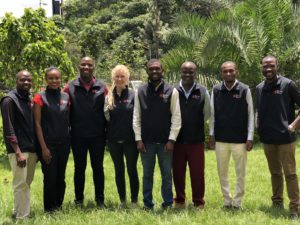
As a show of gratitude TFFT names these gallant champions working in the best interest of the child:
Noah Emmanuel Kayanda – Teacher Training Program Manager
Mariah Bukirwa Nchimbi – Teacher Training Program Coordinator
Robin Exaud Mwanga – Psychosocial Support and Health Coordinator & Scholarship Program Lead
Haruni John Kidungu – Academic Affairs and Student Support Coordinator
Uswege Mwakapango – Mentoring and Coaching Coordinator
Daniel Stephen Mbura – Finance and Administration Coordinator
Deogratius Momburi – Logistics Coordinator
Thabisani Ncube – Country Director